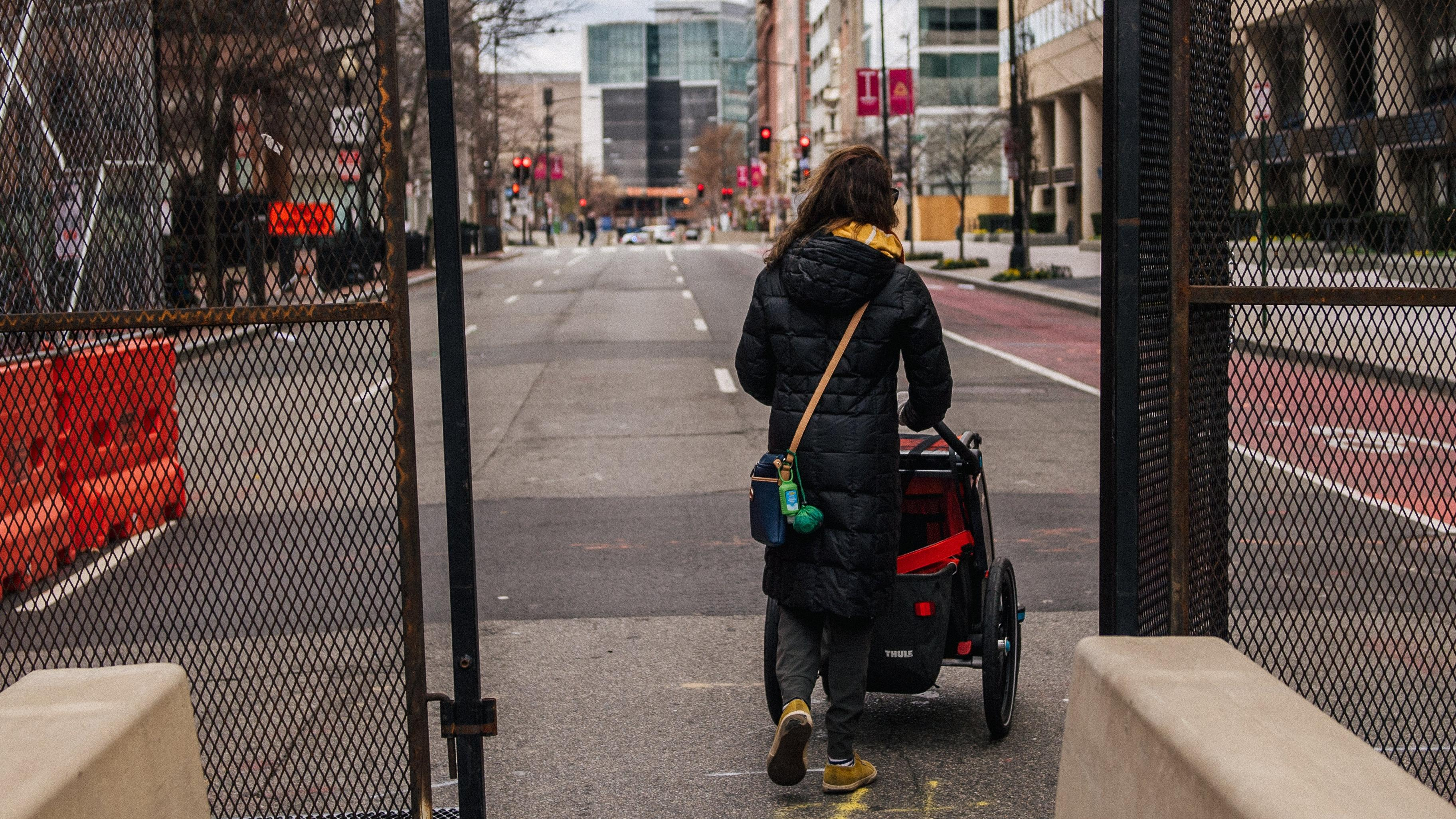We Need More Women-Friendly Cities
The Guardian writes that cities are designed for working white men — not women, and especially not mothers.
Cities aren't designed for women, and they're definitely not designed for mothers — and that has created a massive dependency on vehicles, The Guardian writes. That's because urban designers are generally considering the working man when they design things like roads or public transportation, and it's a massive problem.
The Guardian delves into the concept of the "chauffeur mum," an Australian word that describes the countless suburban women who have very little choice for transportation that aren't vehicles. That largely comes down to the fact that women, even if they're working, are still in charge of domestic tasks like childcare, school drop-offs, shopping, and more. And cities just haven't been built with those concerns in mind, leaving women to forge their own routes behind the wheel rather than take up public transportation.
From the story, which discusses Australia's recent governmental push to address disparities in transportation:
Physical access to work is mentioned in relation to disability, but it affects able-bodied women as well. Part of the problem lies with the layout of our cities and the design of our public transport systems.
Inflexible trunk lines link suburbs to central business districts and run on rigid schedules. They do not cater well for trips that are not a simple commute, but which instead might involve various destinations across the suburbs.
On-demand services, such as those provided by ride-hailing companies, may better suit many women. So may micromobility services, such as bike-sharing, provided that dedicated, safe infrastructure is in place. Yet, unlike conventional public transport, those services are not subsidised in Australia.
This has resulted in a horde of mothers who have no choice but to own a vehicle, and mothers who opt against vehicles have been found to be the butt of judgement; there's an expectation that parents be willing to do whatever it takes to get their kids to school or extracurricular activities, and women are overwhelmingly expected to take on the role of chauffeur.
But that brings up a significant concern: we just haven't designed towns in such a way to facilitate easy access between work, school, and those activities. They're generally designed around the white working man, and everyone else is expected to organize their schedules accordingly. In a world where we're desperate to reduce the impact of our personal travel on climate change, gender and racial inequalities in city design take on a global importance.
The Guardian doesn't have a hard-and-fast solution; rather, it presents these disparities as an opportunity for further study. But if you've ever struggled to get the kids to school and then make it to work on time, you're going to want to read the full article.
